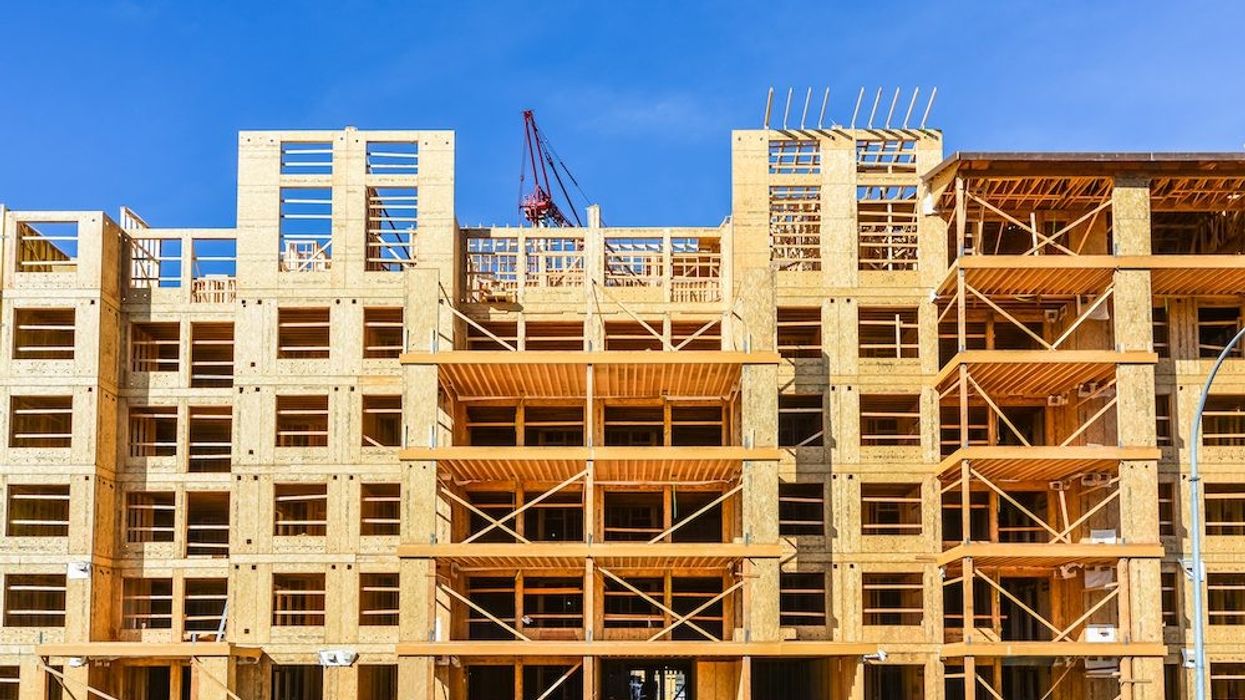Freshly minted for a second term, it’s time for the Ontario Progressive Conservatives and Premier Elect Doug Ford to get cracking on those promised 1.5M homes over the next 10 years. And, naturally, Ontario’s building industry is welcoming the incumbent Premier back with open arms, as they’ll be the key to bringing that supply online.
Both the Building Industry and Land Development Association (BILD) and Residential Construction Council of Ontario (RESCON) issued letters of congratulations to incumbent Ford, and expressed optimism that the next four years will bring about the policies they hope to see to ease existing building processes.
“We are looking forward to working with the government on urgent initiatives to boost the supply of housing, modernize the development application process, and move forward with programs to get more people into the voluntary trades,” said RESCON President Richard Lyall. “We were especially pleased at the commitment during the campaign to build 1.5M homes over the next 10 years.”
READ: "We've Got a Lot of Work Ahead of Us": Housing Minister Steve Clark on Ontario's Supply Challenges
Given it takes, on average, a decade to complete a high-rise project in the GTA -- and 11 years for a low-rise -- “time is of the essence” for the government to move forward with actionable policy, said Dave Wilkes, President and CEO of the Building Industry and Land Development Association.
“With long planning horizons, it will take time for any policy changes to translate into market impacts, which means the government must prioritize housing within the current mandate,” he says. “There is a broad consensus that the roots of the region’s housing challenges lie in the lack of supply, which is fueling the affordability crisis. Now is the time to take bold and decisive action to address the underlying policy issues that have constrained land supply, added costs to new housing and slowed the addition of new supply to the market.”
Housing affordability and supply were hot button issues for voters in the provincial election, and heavily campaigned on by all major political parties. According to an Abacus Data poll, Ontario’s housing crisis was considered the largest issue facing the province, with 92% of respondents identifying it as a major concern.
Time to Revisit HATF Policies
Luca Bucci, CEO of the Ontario Home Builder’s Association (OHBA) says that the industry is excited to work with the elected government, given their track record of being very pro-housing, and hopes to see recommendations outlined in the provincially-appointed Housing Affordability Task Force (HATF) come to fruition.
“As an industry, we’re really looking forward to working with the Premier, and whoever the Minister is, to take those recommendations from the Task Force and operationalize them, so we can get to that 1.5M number within the time span outlined by the Premier,” he tells STOREYS.
“Overall, I think this is a positive thing for the home building industry. I think it’s going to bring some significant changes to the housing market, it’s going to create an environment where more housing supply can get online, and create conditions where housing prices can stabilize or start to decrease over time.”
A major existing hurdle to achieving the 1.5M supply plan, he adds, will be alignment among all levels of government, especially at the municipal level.
“I think we have to accept the fact that if we’re going to achieve that goal, it’s going to take cooperation from the industry, the federal government, the provincial government, and, more importantly, the municipal governments,” he says.
“I think one of the challenges that our industry is facing is we face a lot of backlog at the municipal level when it comes to things like permit approval, site plan approval, etc. And a lot of times, these delays are primarily the result of staff being stretched too thin at the municipal level, sometimes these applications get put on desks -- I think both the federal and provincial government understand that this is a problem, and they both committed resources to help fix the backlog.”
That municipal red tape on development came under particular fire in the PC’s More Homes for Everyone Plan, which received Royal Assent on April 18. The Bill changes existing housing legislation -- namely the Planning Act and City of Toronto Act -- to force municipalities to make quicker decisions on development and rezoning applications, in the form of lost application fees. Under the new process, a municipality that fails to make a decision on an application within 60 days would lose 50% of their fee, 75% at the 90-day mark, and the entire amount should it surpass 120 days.
The Bill has received considerable pushback at the municipal level, with city officials calling the deadlines both arbitrary and unrealistic, with concerns that it will only lead to a greater glut of appeals at the Ontario Land Tribunal down the line.
The PC government also faced criticism at Budget time, when it deigned to put into action a number of the recommendations made by the HATF, namely exclusionary zoning. This second term, says Bucci, will give the government the opportunity to breathe a second wind into those proposals, namely the removal of exclusionary zoning policies that would encourage greater gentle density.
READ: New Housing Legislation Falls Short of Province's Own Task Force Recommendations
“I don’t particularly think things are being left out -- I think the Minister and the Premier at the time took a very proactive approach and recognized that these aren’t easy things to implement, and it’s just not something that you can force on municipalities or the industry without some sort of involved discussion,” he says. “What we’re really looking forward to is having those discussions with the municipalities so we can look at things like the missing middle, and how we can bring more things like the missing middle into areas that make sense.”





















